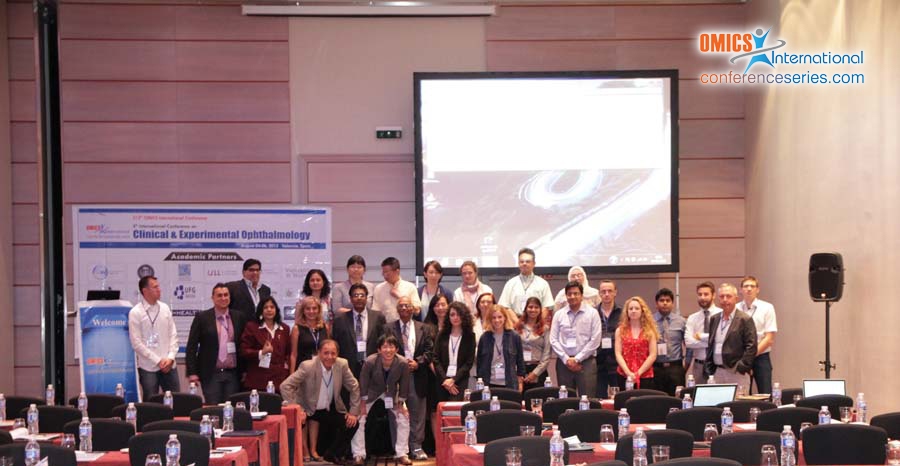
Dario Vasquez Zuloaga
University of Chile
Chile
Title: Curcumin is a natural angiogenic that inhibits hypoxia-induced VEGF release in retina cells
Biography
Biography: Dario Vasquez Zuloaga
Abstract
Introduction: The transcriptional factor hypoxia-induced factor -1 (HIF-1) has been implicated in the pathogenesis of choroidal neovascularization through enhanced transcriptional activity of VEGF. Retinal pigment epithelium (RPE) is the main source of VEGF which activates choroidal vascular endothelial (CVE) cells and generates neovessels into the retina leading to irreversible blindness. Curcumin, a natural diphenol displays HIF-1 inhibitory activity in tumor cells. However, its effect on retinal cells exposed to hypoxia has not been previously reported. Hence, we aimed to study curcumin effects on the expression of VEGF by RPE cells. Material & Methods: RPE (ARPE19) cell lines were challenged with hypoxia (1% O2) in a culture chamber and HIF-1α, VEGF-A165 and VEGF-A189 gene expression were studied. CVE cells (RF6A) were treated with RPE-conditioned medium and migration and angiogenesis were determined by using wound healing and matrigel assays. Results: Curcumin inhibits hypoxia-driven VEGF up regulation in RPE cells. The conditioned medium of hypoxic RPE-cells increases migration and vascular network formation of retinal vascular cells. Curcumin (20 and 40 μM) is able to prevent these effects inhibiting the migration of vascular cells. Discussion: Curcumin prevents hypoxia-mediated increase of VEGF-A gene expression in RPE cells and angiogenesis induced by secreted factors from RPE cells. Further studies with curcumin on retinal cells are needed to establish its potential usefulness as a novel ocular antiangiogenics molecule.

